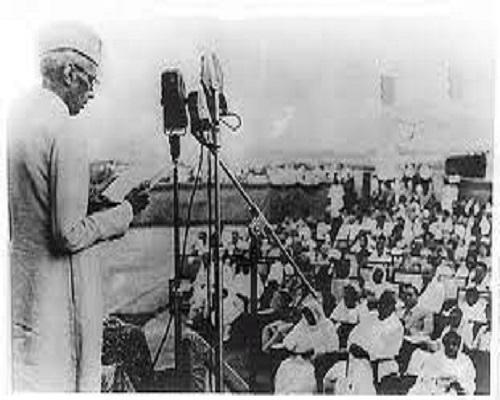The founder of Pakistan, Quaid e Azam Muhammad Ali Jinnah presented his 14 points in March 1929 after which they are known as 14 Points Of QUAID-E-AZAM. The points were made by the Quaid while keeping in mind the viewpoint of Muslims.
After several years, these points are used and are being taught in various schools and colleges. He addressed these points in Delhi while the entire Muslim community appreciated them. However, Hindus showed their disinterest and disregarded the points.
Let’s talk about those points in detail that were drafted by C Rajagopalchari.

14 – Fourteen Points of Quaid e Azam
- The first point that was present in Quaid’s speech was to give powers to all the provinces equally. He wanted to give residual powers to all the provinces equally.
- The second point addressed the autonomy of provinces. It means that every province must have the right to make independent decisions without anyone’s pressure or interference.
- In the third point, he talked about the representation of Minorities. We all know that Jinnah has had always talked about the rights of Minorities. He wanted to give equal rights and power to Minorities in all the provinces without limiting the majority.
- In the fourth point, he emphasized the representation of Muslims in the central legislature. He added that the participation of Muslims in the Central Legislature should not be less than one-third.
- He wanted to have separate elections for communal communities where every person must have the right to cast their vote according to their choice.
- In the next point, he discussed territorial distribution. According to Jinnah, any provincial redistribution that might need anytime will not impact the Muslim greater part in areas including NWFP, Punjab and Bengal.
- The next point was all that every Muslim needed at that time. He pointed that religious freedom should be given to every community and group. Every Muslim, Sikh or Hindu community should have the right to worship their God.
- In the next point, he added that if any resolution is made that is being rejected by three-four members of the community then it should not be passed. The resolution must be passed if the majority of people are agreed to it.
- He made sure to talk about every province in his points. In the ninth point, he discussed the rights of Baluchistan and NWFP. Jinnah added that there should be reforms in these provinces as well.
- Jinnah demanded the separation of Sindh from the Bombay presidency in his next point.
- He talked about the accurate Muslim shares in the next point adding that all Muslims should be given equal and appropriate resources without any discrimination.
- Jinnah asked for the protection of Muslims. He said that there should be a law that takes care of the rights of Muslims and should give complete security to every individual.
- Muhammad Ali Jinnah wanted one-third Muslim representation in the central and provincial cabinet.
- In the last point, he addressed amendments criteria. He said that there should not be any amendment or change in the constitution without the province’s approval.
The reaction by the Hindu Community
These were the 14 Points Of QUAID-E-AZAM that are never forgotten despite several years. At that time, it was highly disregarded by the Hindu community as they wanted to have their complete hold on every province.
The Congress party rejected these points and alter Jawaharlal Nehru called them 14 points of Quaid e Azam.
Quaid e Azam’s main motive behind these points was to give equal rights to the Muslims and Minorities as they were facing many issues at that time.







